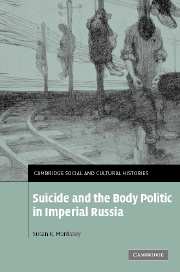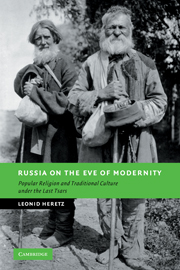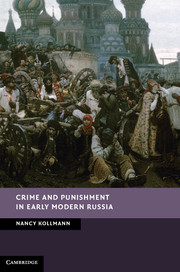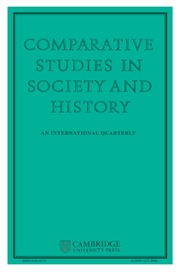Suicide and the Body Politic in Imperial Russia
In early twentieth-century Russia, suicide became a public act and a social phenomenon of exceptional scale, a disquieting emblem of Russia's encounter with modernity. This book draws on an extensive range of sources, from judicial records to the popular press, to examine the forms, meanings, and regulation of suicide from the seventeenth century to 1914, placing developments into a pan-European context. It argues against narratives of secularization that read the history of suicide as a trajectory from sin to insanity, crime to social problem, and instead focuses upon the cultural politics of self-destruction. Suicide - the act, the body, the socio-medical problem - became the site on which diverse authorities were established and contested, not just the priest or the doctor but also the sovereign, the public, and the individual. This panoramic history of modern Russia, told through the prism of suicide, rethinks the interaction between cultural forms, individual agency, and systems of governance.
- An innovative social and cultural history of suicide in Russia from medieval times to the Russian Revolution
- Uses a wide array of sources including court cases, letters, diaries, novels in order to explore contemporary representations of suicide
- A highly interdisciplinary work, connecting religion, medicine and psychiatry with histories of politics, social change and the self
Reviews & endorsements
"...by placing Russian suicide in a pan-European context, she adds to the ongoing discussion of Russia and the west. In the process, she offers more innovative insights into Russia than I have read in years."
-Louise McReynolds, Slavic Review
"This book is filled with interesting and important insights about Russian culture and society, about modernity in Russia and Europe, and about modern subjectivity. Its treatment of sources is penetrating and, at times, fascinating. The book stakes its own claim to its own peculiarity by treating the subject differently than previous treatments of self-killing from merely sociological, psychological, and literary perspectives, and in so doing firmly establishes itself as an important historical perspective on suicide and the body politic in Imperial Russia. It is worth the energy of a close reading."
John P. Farrell, Canadian Journal of History
"The breadth of this undertaking is admirable and Morrissey's thesis is a sound one that enriches the field of Russian History. She challenges accepted paradigms and periodizations and, in the process, demonstrates that modernity itself is a hugely fraught process..."
Abby M. Schrader, The Russian Review
'This is cultural history at its best and deserves a readership beyond Russian specialists. Indeed, a short review cannot do justice to its wide scope, rich material and multiple levels of argument. The historical study of suicide, in Morrissey's hands, both deepens and begins to chip away at our notions of the past."
-Kenneth Pinnow, Social History
"...informative glimpses into some of the institutional fighting that erupted when the church, the autocracy, and the professions competed for control over the Russian body, literally and metaphorically...I applaud her enterprise: to find new categories of analysis that prove innovative ways of thinking about Russia."
Louise McReynolds, Slavic Review
"Susan Morrissey's study of the Russian encounter with suicide from the seventeenth to the early twentieth century is an exemplary model of social-historical scholarship—extensively researched, situated in both comparative and particular historical contexts, interpretively wide-ranging." -Mark Steinberg, Journal of Social History
"Morrissey dissects the act of self-destruction in Russia from the eighteent through the twentieth century with finesse...Based largely on archival materials and printed primary sources, the book displays a firm command of recent scholarship about related studies treating Russia and Europe." -Patricia Herlihy, Journal of Interdisciplinary History
"Suicide and the Body Politic represents a valuable contribution both to the historiography of Imperial Russia in general and to our understanding of its culture in particular. It should prove to be of interest to both historians and to students of Russia's literature and culture." -Dunja Popovic, Slavic and European Journal
"Morrissey is at her best in providing vignettes and teasing out individual meanings from her dizzying array of examples." -Christine D. Worobec, American Historical Review
"...Morrissey has composed an analysis of suicide in Imperial Russia that will be required reading for anyone interested in the social and political pathology of this period. One of the benchmarks for defining a very good book is whether it must be consulted when searching for evidence on a specific subject. This is clearly such a study." -Martin A. Miller, Journal of Modern History
Product details
December 2006Adobe eBook Reader
9780511254956
0 pages
0kg
This ISBN is for an eBook version which is distributed on our behalf by a third party.
Table of Contents
- Acknowledgements
- Introduction
- Part I. Public Order and its Malcontents:
- 1. Victims of their own will
- 2. Virtue and vice in an age of enlightenment
- 3. The regulation of suicide
- 4. Punishing the body, cleansing the conscience
- 5. Policing and paternalism
- 6. Arbiters of the self: the suicide note
- Part II. Disease of the Century:
- 7. Sciences of suicide
- 8. Crime, disease, sin: disputed judgments
- 9. A ray of light in the kingdom of darkness
- Part III. Political Theology and Moral Epidemics:
- 10. Freedom, violence, and the sacred
- 11. Children of the twentieth century
- Epilogue
- Selected bibliography.








